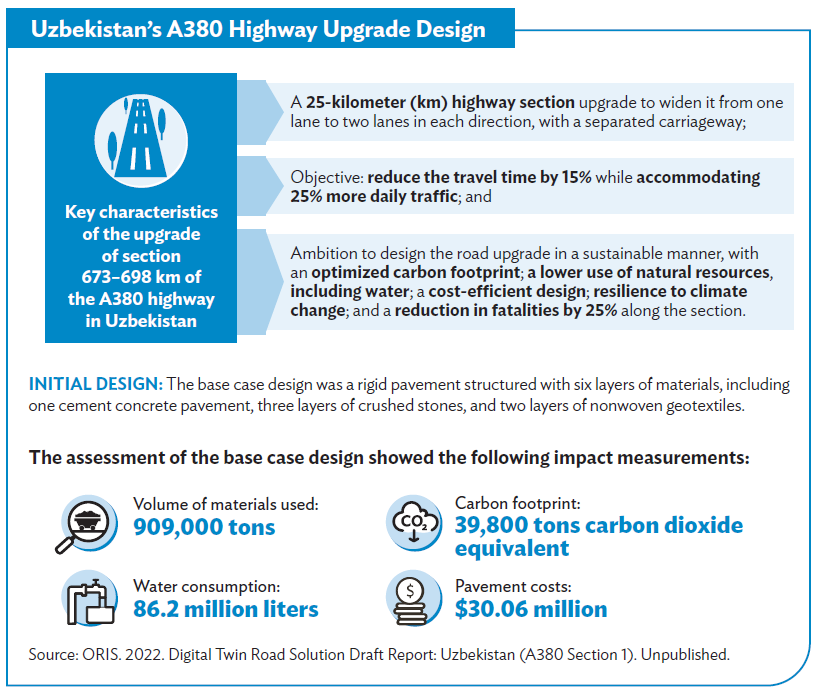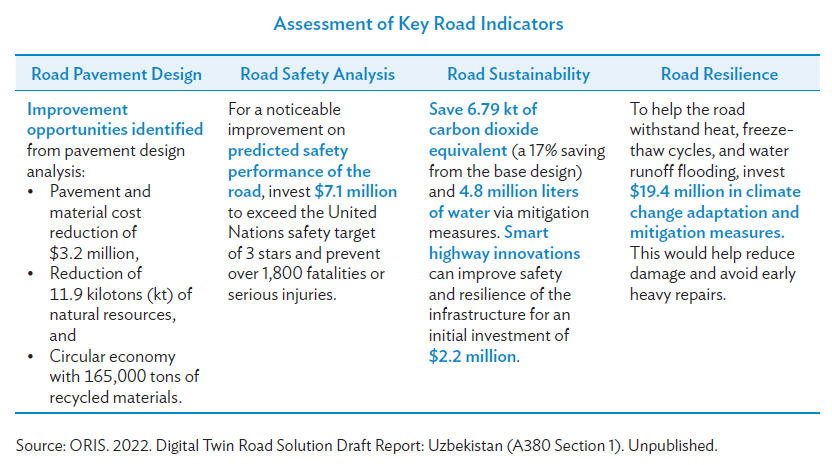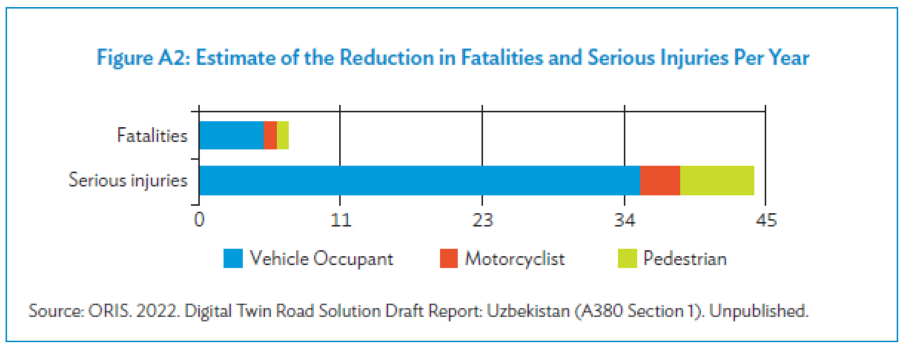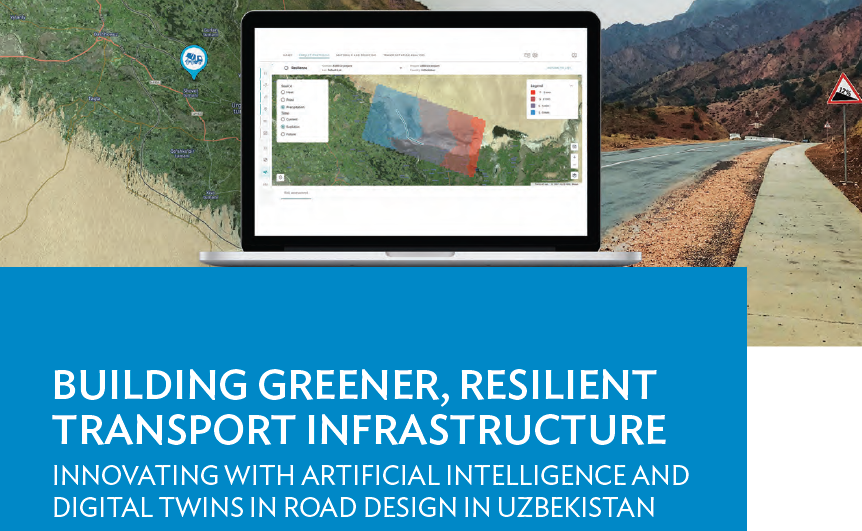An Asian Development Bank (ADB) Report has shared the Bank’s partnership with ORIS using Artificial Intelligence and Digital Twins to optimise the safety and climate resilience of upgrade designs for the A380 Highway in Uzbekistan, projecting the saving of 1,845 fatalities over its 30-year service life.
The A380 is a major trade route in Central Asia and key safety improvements included:
- Increased safety for all road users through implementation of roadside barriers, shoulder rumble strips, and speed reductions at critical sections
- A 56% reduction in the potential of fatalities and serious injuries (FSIs) – more than double the target – avoiding 1,845 fatalities over 30 years
- Achievement of a minimum 3-star safety rating as required by both the ADB and United Nations’ Global Road Safety Performance Targets
Key characteristics of the design:

Through the ORIS Materials Intelligence platform, the project was digitized to create a digital twin. After compiling and processing local construction materials into the platform, a comparative analysis on multiple scenarios was conducted providing an assessment of key indicators:

The additional investment for recommended measures was evaluated at USD$7.1 million, representing approximately 11% of the total project cost.
Building greener and more climate-resilient infrastructure is crucial to withstand the catastrophic impacts of climate change and continued functioning of essential services during adverse events.
iRAP Global Programme Director Greg Smith said, “The ORIS platform’s in-built safety evaluation draws on the iRAP Star Rating and the FSI estimation methodology and ensured the safety of road users was prioritised in the project.

“We congratulate the ADB, ORIS and Uzbek road committee on the project outcomes and are delighted to see 3-star or better safety embedded following ORIS and iRAP’s announced collaboration for safer road designs and assessments in September 2022.”
Nicolas Miravalls, CEO of ORIS said, “We are proud to partner with iRAP to support our customers in positioning road safety as a key element of their project design, at the same level as environmental concerns and cost-efficiency. We are convinced of the need to deliver better road infrastructures, safer and more resilient, through a collaborative approach with all actors of the road ecosystem.”
Pawan Karki, Asian Development Bank Transport Specialist emphasized: “Thanks to all innovations embedded and the quick and numerous digital iterations performed through ORIS, the A380 project is shaped to align with Paris Accords.” [and UN Road Safety Targets]
Separately, iRAP is also working on a new project underway in Uzbekistan, Kyrgyzstan and Tajikistan to improve road design standards for Central Asia Regional Economic Cooperation (CAREC) countries. Read more on this here

















